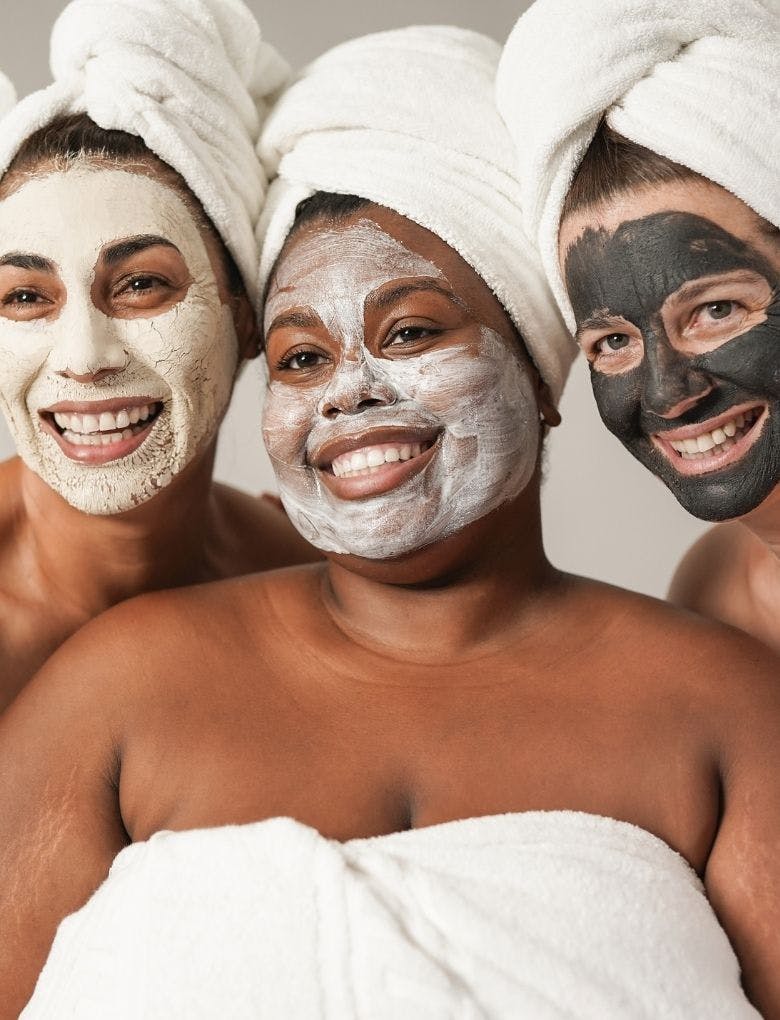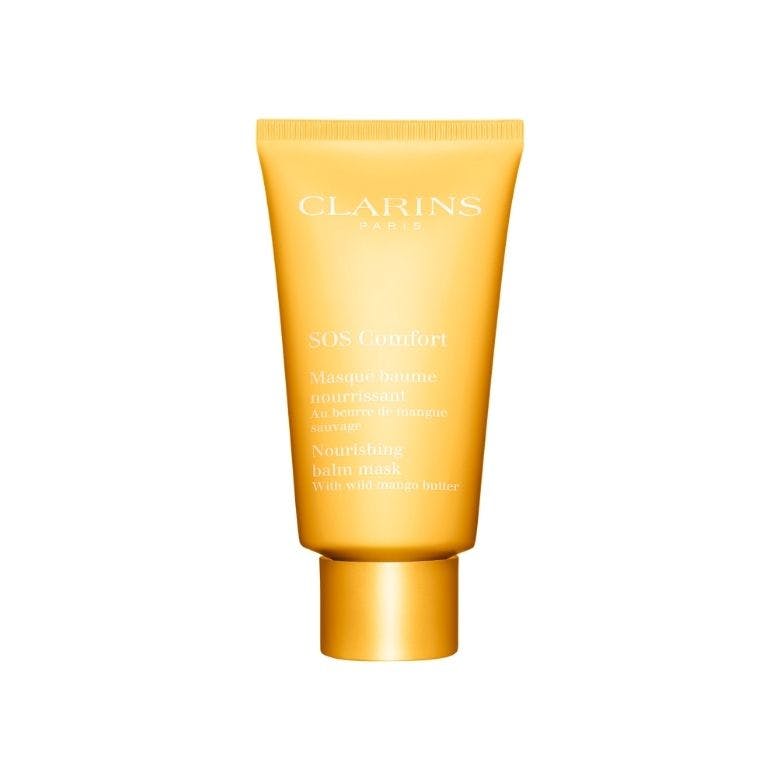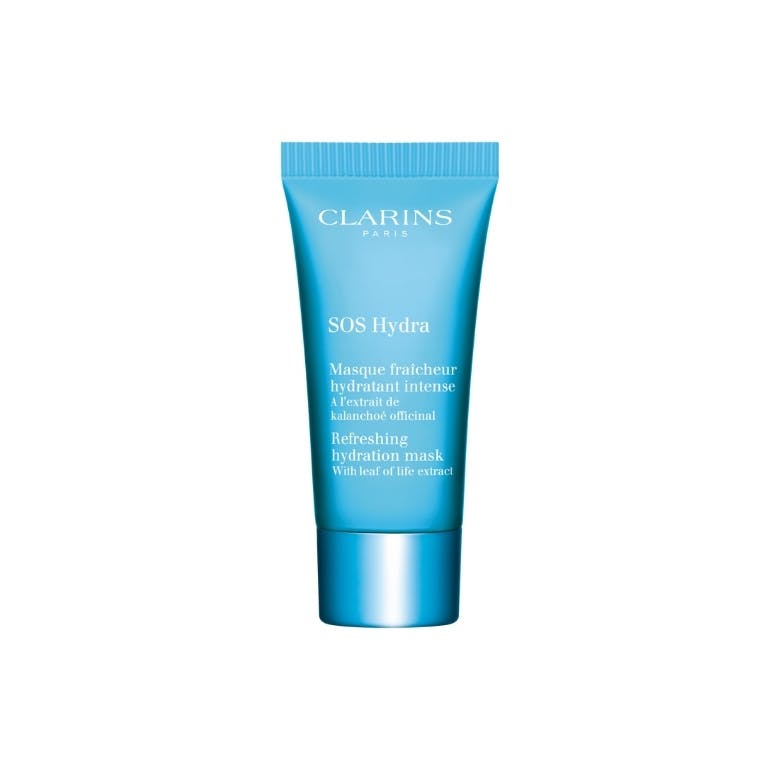Face Masks That Provide Instant Relief For Dry Skin
6 minutes read
We’re talking all things face masks; no, not the mouth-and-nose-covering garments that have seen us through a pandemic, but the much more interesting skin-boosting concoctions that can tackle a whole host of complaints – including pesky dry skin.
One of the most common gripes, it can strike at any age, and many of us have felt the tight, scaly, cracked or rough sensation that accompanies skin in need of hydration. Skin that lacks moisture is duller, more uneven and lacking in radiance. So, it’s no wonder we spend hundreds of millions of pounds a year trying to soothe and prevent it.
Dry skin can be caused by a host of factors, from bitter winds outside to central heating and hot showers inside. Regularly moisturising is vital to keep the skin hydrated, but for those in need of a short, sharp injection of moisture could benefit from adding a face mask to their routine.
Whether your skin type is dry, or you are suffering from a bout of dehydrated skin (the former lacks oil, the latter water), there are plenty of masks available to lend a helping hand.
Read more: Dehydrated Skin? Try This

While they won’t remedy dry skin with just one application, when carefully selected and applied, they can provide some immediate, soothing relief. Masks contain a higher concentration of active ingredients and the mask itself occludes the skin, meaning it provides a barrier so those powerful ingredients can’t evaporate and escape. Therefore, they can better penetrate your skin. Essentially, a hydrating mask is a tall, cool glass of water for your skin, but without the price tag of a professional facial.
A hydrating mask will help support your other skincare products in boosting moisture levels when slotted into your routine. So, it’s best to consider them a supplement, as opposed to a one-hit-wonder. Tempting as it may be to slather on your favoured mask at any given opportunity, it’s important not to over-use them as this could potentially irritate your skin.
Studies suggest you use a face mask once to three times a week, depending on the mask formula. And be sure to apply onto a clean face, washed with warm water to open up your pores.
Face mask ingredients for skin hydration
With so many face masks on the market, here’s our guide to deciphering which ingredients best remedy dry skin.
Hyaluronic acid
Maintaining a high water content in your skin is vital for keeping skin juicy and hydrated. Described as the key molecule in skin moisture, hyaluronic acid has the remarkable ability to retain large amounts of water (in fact, it can bind up to 1000 times its weight in h20). If you think of your skin as a garden – to flourish and bloom, water is a necessity. This clever ingredient isn’t just a watering can; it’s a comprehensive sprinkler system, acting as a humectant to draw in moisture from its surroundings for a good healthy serving of hydration.
Squalane
While hyaluronic acid increases water content in the skin, squalane’s job is to act as the padlock to keep it there. It’s an emollient, so it does this by covering the skin with a protective film, trapping in those precious drops of hydration.
TRY: Squalane-loaded SOS Comfort Face Mask
Even the driest of complexions will be soothed by this ultra-rich balm mask containing mango butter to restore suppleness and help minimise the risk of future dry spells.

Vitamin E
Research has shown that this antioxidant, when applied topically, can help moisturise the skin and for that reason, it’s often an essential component of skincare products aiming to aid hydration. Also, the risk of dry skin increases as you age, so introducing antioxidants like vitamin E and vitamin C to your skincare will help soothe fine lines and other signs of ageing while fighting free radicals.
Read: 5 Skin-boosting Vitamins You Need For Your Skin
Glycerin
The third most reported ingredient in cosmetic products, glycerin, is a humectant and a major player in the moisturising game. Studies have shown that it hydrates the outer layer of the skin whilst improving skin barrier function, an essential factor in retaining moisture.
TRY: Glycerin-loaded SOS Hydra Refreshing Hydration Mask
Like dunking thirsty skin directly into a water fountain, this ultra refreshing mask contains leaf of life – an ingredient that promotes hydration on a deeper level.

Honey
We love it smothered on toast or drizzled on our yoghurt, but amazingly raw, unpasteurised honey can do good when slathered onto your face. It’s a natural humectant, meaning it’ll draw moisture into the skin, and as a bonus, it’ll kill bacteria too.
Avocado
The fruit beloved by the Millennial generation is also a natural source of vitamins E and C. It is bursting with biotin, a vitamin often found in supplements for healthy hair and nails. You can apply it topically and as simple as rubbing the flesh directly onto your face or mixing it with honey and some coconut oil for an at-home remedy for dry skin.
Shea butter
Another brilliant emollient, shea butter, often crops up in the ingredients list of many a moisturising product, and research has shown that it has anti-inflammatory and hydration-boosting properties. Raw, unrefined shea butter can be applied straight onto the skin until absorbed. But a warning for acne-prone types – its thick constitution means it may clog pores and over-moisture, so some may wish to steer clear.
Aloe vera
Whether in pure plant form or a ready-to-go gel, aloe vera may already be sitting in your bathroom cabinet, a go-to for sunburn, minor abrasions or irritation caused by waxing or shaving. Another string the powerhouse plant can add to its bow is the ability to help seal moisture into the skin, while alleviating itchiness and inflammation. It’s also a natural source of vitamins A, C, B and E which will help hydrate and brighten skin.
Coconut oil
Relocate this sumptuous oil from the kitchen cupboard to the bathroom cabinet asap. It’s absolutely loaded with vitamin E and fatty acids so it acts as a sealant, locking moisture into the skin. Although dense in texture, when applied, the oil will warm and melt in. But be cautious, coconut oil is highly comedogenic, like shea butter, meaning it maybe too rich for acne-types.
Rosehip seed oil
Extracted from rosehip seeds using a cold-press method, this natural oil is bursting with fatty acids and vitamins E, C and D. If environmental aggressors and free radicals have left your skin barrier compromised, studies have shown that rosehip oil can help repair the damage. Immediately applying the oil post-bathing will help prevent the dry, itchy sensation that can follow contact with hot water.
Oats
Not just a breakfast essential, research suggests that using colloidal oatmeal in skincare can help alleviate symptoms of dry skin, including itchy and scaly skin. But do note, this isn’t your usual porridge fodder, colloidal oatmeal is oat kernels that have been very finely milled and processed for use in lotions and skincare products. For a DIY oatmeal treatment, purchase rolled oats and grind very finely, before adding to your bath.
As with all aspects of your skincare regime, it’s important to keep an eye out for any ingredient or product that could irritate your skin. Red flags include redness or tenderness, dry or peeling skin and breakouts, and it’s wise to do a quick patch test before committing to a particular face mask. If concerned, always visit your doctor or dermatologist. Sensitive types should avoid masks containing ingredients that could be harsh on delicate skin, such as alcohol. Likewise, added fragrance and the over use of essential oils should be avoided or sampled with caution.
Sign up for our newsletter
We will keep you in the loop for special offers, exclusive gifts and product news.

